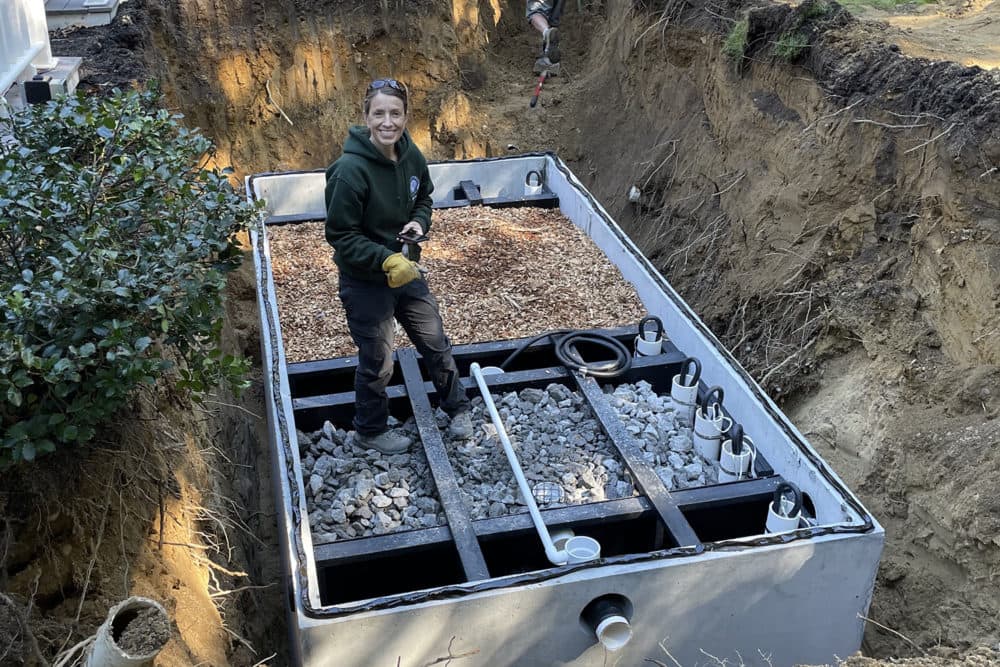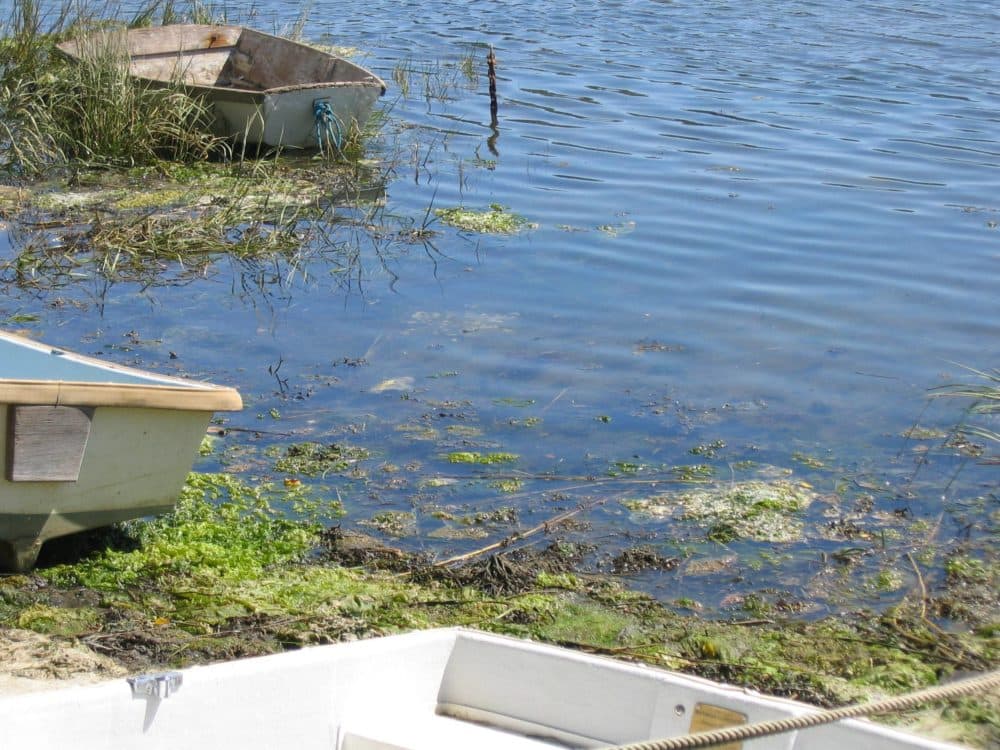Massachusetts residents are expressing concerns about the cost, feasibility and fairness of proposed environmental regulations that could require thousands of homeowners to replace or upgrade their septic systems in the next five years.
The proposed regulations are designed to combat nitrogen pollution from septic systems that have degraded water quality on the Cape, Islands and south coast of Massachusetts for decades.
In recent public meetings, there was general agreement that the areas' bays and estuaries are in dire condition — one Cotuit resident said visitors now call nearby Popponesset Bay "Poop-anesset" due to the smell. And while some speakers voiced support for the proposed regulations, many expressed shock that homeowners might be required to buy new septic systems if towns fail to obtain watershed permits.
"I'm not somebody that has a McMansion. I've got a three-bedroom home that's been in my family for a bazillion years," said Joan Hutchings, who owns a house in North Truro and replaced her septic system in 2022 for about $25,000. "The town of Truro required me to do this. I did it. And now the state's going to have me do something else? I don't know, I might just put an outhouse out there."
Experts say that replacing a traditional septic system with an updated, nitrogen-filtering system could cost up to $35,000. But some said that price estimate was way too low.

"Thirty or $35,000...that's a complete misrepresentation," said East Falmouth resident Chris Shanahan, who says he installed one of the systems 11 years ago. "You can buy a system for that. But you got to maintain it, you got to fix parts — it just never ends. So lifetime expense is more like $80,000 to $100,000 over 30 years."
Even the lower estimate had homeowners up in arms. "You are looking at a massive protest on the scale of another Boston Tea Party," said Brewster resident Frank King. King also pointed out that for his area — like many other parts of Cape Cod — a sewer hookup was not feasible, either because houses are too far apart, or for other legal or geological reasons. He suggested that residents unable to connect to sewers should be exempt from the new regulations.
Several speakers said the state should institute a program like MassSave to incentivize homeowners to update their systems. Others suggested that the harbors and inlets of Cape Cod were a state treasure, so the state, not individual homeowners, should pay to clean them up.
"This is a Commonwealth issue. It should be addressed with a Commonwealth solution," said South Dartmouth resident La Var Williams. "That's what we're asking for. Let us all tackle this collectively."
Members of the public also raised concern about the feasibility of the five-year timeline, given the lack of trained installers and ongoing supply chain shortages, issues that MassDEP Wastewater Chief Marybeth Chubb acknowledged were "legitimate."
Other speakers suggested the drastic measures proposed by the state may not have a significant impact on water quality. While the Environmental Protection Agency estimates that 80% of excess nitrogen loading on Cape Cod stems from traditional septic systems, some dispute that number, pointing to stormwater and agricultural runoff as big contributors.
James Morgado of South Dartmouth said farms near his home apply about 50,000 tons of fertilizer twice a year. "I'm curious as to how the contribution of a single septic tank even remotely compares to the amount of tonnage of fertilizer," he said. "The burden on the homeowners in this region is really unprecedented."

Some speakers spoke in favor of the new regulations, saying the pollution problem had gone unaddressed for too long.
"It's about time," said Korrin Petersen, senior attorney for the nonprofit Buzzards Bay Coalition. "The state and local communities have been too slow to act. The only sensible way to solve the nitrogen pollution problem is through comprehensive planning, and that is what these regulations are requiring."
Andrew Gottlieb, a Mashpee resident and executive director of the environmental advocacy group Association to Preserve Cape Cod, also applauded the proposed regulations.
"I would encourage the department not to get distracted by some of the noise that you're hearing in some of the other comments about the difficulties associated with upgrading systems within five years," Gottlieb said. "I believe your regs' structure has it right."
Another supporter was Gary Markowitz, the Cotuit resident who made the comment about "Poop-anesset" Bay. "It's not very funny living there," he said.
Markowitz, who co-founded a group to protect Shoestring Bay, said the poor water quality was lowering property values, and the state should expedite approvals for new, innovative septic systems.
"We can no longer afford to kick this can down the road," he said, urging MassDEP to "stay the course and sign these regulations into law."
The final public hearing is scheduled for December 5 in Hyannis. Public comments will be accepted until December 16, and the state is expected to issue final regulations in early 2023.
"about" - Google News
December 05, 2022 at 05:54PM
https://ift.tt/ANGF1Pa
Mass. residents express concerns about cost and feasibility of proposed septic regulations - WBUR News
"about" - Google News
https://ift.tt/lkJPuZx
Bagikan Berita Ini














0 Response to "Mass. residents express concerns about cost and feasibility of proposed septic regulations - WBUR News"
Post a Comment